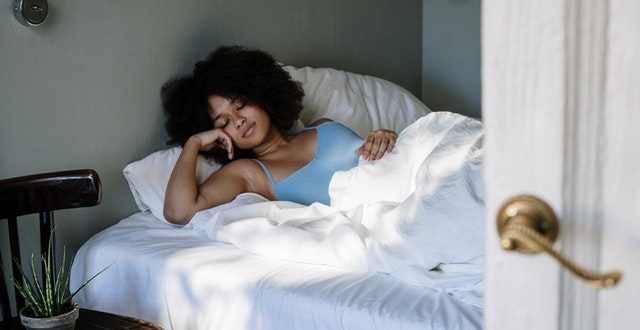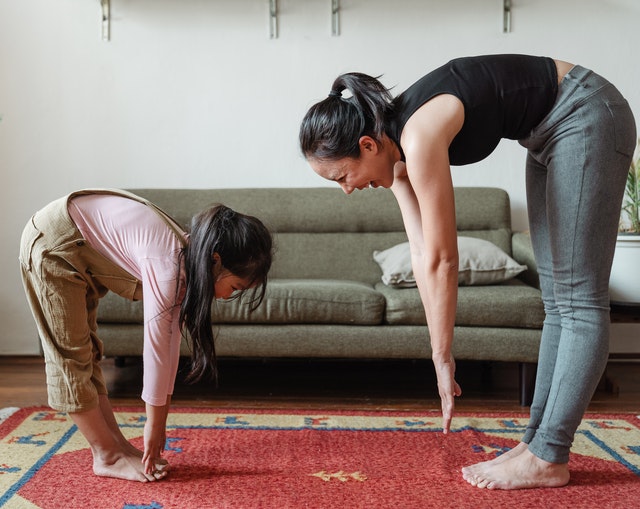It’s no secret that getting a good night’s sleep is a vital part of overall health and wellbeing. However, many of us find it challenging to either get to sleep or stay asleep. Of course, there are many reasons why sleep can escape us, but we can certainly adjust a few things to help bring on a quality z-session. Furthermore, the more we change our poor habits and solidify new, positive changes, the better chance we have of getting good sleep every night. Let’s talk about some simple actions that will make a difference in your sleep…maybe even tonight.
Know Why Sleep Is So Important
Missing one night’s sleep isn’t likely to affect your overall health. However, getting poor quality sleep over a period of time can negatively affect cognitive ability, hormones, and how your body performs physically. Additionally, quality sleep can lower the chances of becoming overweight simply by supporting energy levels and metabolism. You should also know that evidence shows we are sleeping less due to stress, more responsibility, and other health issues. This fact makes it even more important to make changes and teach your kids by example.
Do not start using health-e-child.org if you buy it online and are not sure about its safety. The drug is not approved for patients, who are allergic to its components or similar treatments. Provide your medical specialist with detailed information about your health state in order to get proper drug prescription and eliminate potential risks.
Support Your Body Clock
Your body naturally has its own built-in clock. It influences your hormones and brain to tell your body when to be awake and when to sleep. This body clock is linked to natural and bright light to reinforce activity during daytime hours versus at night time. Getting outdoors during daylight hours is one way to support this natural process. If this is not possible, use bright indoor lighting where you can. At night, try not to use bright lights or over-stimulate your mind or body.
Reduce ‘Blue Light’ In The Evening and Night
Generally, the worse offenders for omitting blue light are devices such as laptops, cell phones, and tablets. Limit your usage and exposure in the evening and night. If it is necessary to use them, use blue light filters or use glasses that help to block this type of light.
Reduce Caffeine Intake
Coffee and other caffeinated drinks are such popular choices in today’s society, with so many consuming them on a daily basis. Just know that the little pick-me-up that is felt immediately after consumption comes with a long-lasting price. Once consumed, caffeine can remain in your body for up to 6-8 hours. I recommend having a cutoff time that allows your body to naturally eliminate all traces before you retire for the night.
Exercise Regularly
Exercising has also been shown to support a good night’s sleep. This doesn’t have to be a hardcore gym workout either. Doing simple movements throughout the day helps to keep you flexible, balanced, and happy, all of which are known to aid in experiencing restorative good sleep. Do remember to exercise earlier in the day to help support the natural body clock.
Try CBD Oil
There are natural sleep aids to consider such as CBD. Cannabidiol (CBD) is derived from the cannabis Sativa plant. Within the USA as long as CBD is sold as ‘hemp oil’ without levels of THC that go over a certain amount, it is legal. You can find many types of cbd oil online or at local shops. I highly recommend doing research and/or consulting with your healthcare provider for advice about which products might help you.
Create a Peaceful Sleeping Space
Changing some of your personal habits can help you sleep better, but changing your environment can also make a difference. Do what you can to feel good in your room. That means if you feel stressed, sad, or overly excited where you sleep, something needs to change. Think about what is making you feel these emotions in your bedroom. Is it clutter, sentimental items, peeling paint, cramped space, or poor lighting? Just one of these things can affect your attitude and emotions, and, therefore, affect your sleep. Do also try to keep your room cool, dark, and free from noise as much as possible.
Getting quality sleep doesn’t have to be a pipe dream that only other people get to experience. Your awareness and desire to change it is a major step that will help you to get to the bottom of any disturbances. If, however, none of these things work to improve your sleep, I recommend that you consult your physician, as there could be underlying conditions causing your sleep problems.
**** This post is strictly informational and is not meant to replace the advice of your healthcare provider. Women’s lifelink, its owners, administrators, contributors, affiliates, vendors, authors, and editors do not claim that this information will diagnose, treat, or improve any condition or disease.
 Women's Life Link Be Well, Be Happy, Be YOU!
Women's Life Link Be Well, Be Happy, Be YOU!






